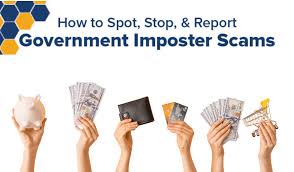
INDIANA — The Federal Trade Commission is sounding the alarm on government imposter scams.
Instead of a single scam call, some new schemes set you up with an initial phone call and transfer you to a second call to finish the job.

Here’s how it works, according to the FTC. You get a call from someone who says they’re with a company and they’re contacting you about a routine problem like suspicious charges on your account or a virus on your computer, or some account breach. The story then goes to the next level. The caller says your name is involved in a serious crime, and a court is about to seize money in your bank account or retirement savings. At that point, they play the hero and claim they can put you in touch with someone from “the government” to help you fix the problem.
At that point, if you’re still on the line, the caller transfers you to an accomplice who plays the role of “the government.” The person will claim to represent some government agency while trying to trick you into pulling cash out of your bank account or retirement savings and giving it to someone.
Nothing about either of these phone calls is legitimate. Here are some tactics the FTC advises you to watch for:
- Scammers try to convince you they’re with the government to gain your trust by faking the caller ID to make it look like a government agency is calling.
- Scammers give you an employee ID or badge number or use the name of an actual government employee.
- Scammers send official-looking letters with seals and make government agency names that sound real but aren’t.
The FTC points out that a true government employee will never tell you to pull out cash and give it to someone else. They won’t have you to pay with a gift card, wire transfer, payment app, or cryptocurrency. And they won’t have you transfer money from your accounts to “protect” it.
They also won’t ask you to keep your conversation secret or lie if someone asks you about it. That is a classic scammer “red flag.”
Report imposter scams online to the Federal Trade Commission.



